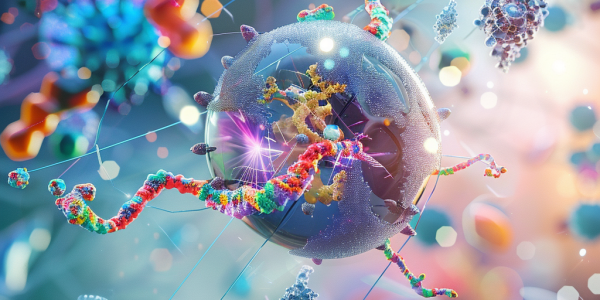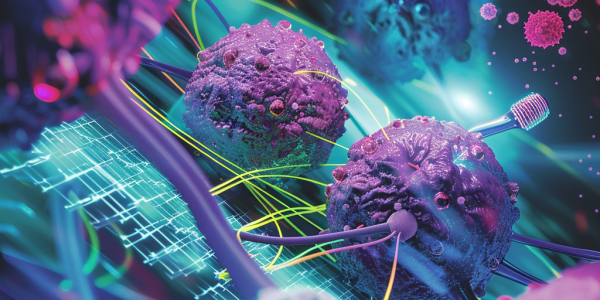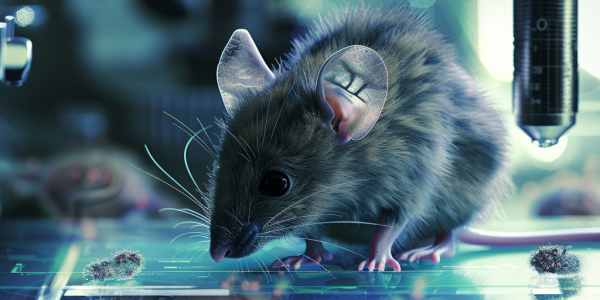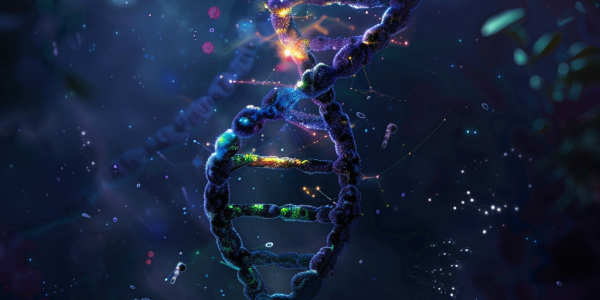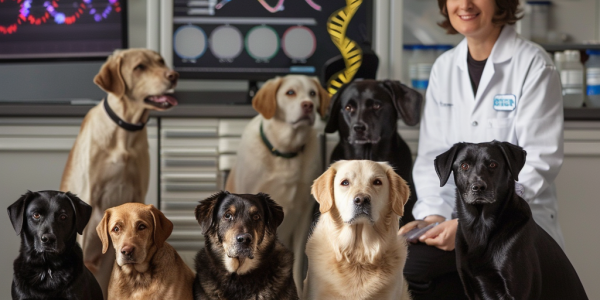Groundbreaking Study Advances Gene Therapy with Engineered Virus-Like Particles
A groundbreaking study published in ACS Nano reveals how researchers at the National Physical Laboratory, in collaboration with IBM and STFC, have developed artificial virus-like particles (virions) for targeted genetic delivery. This innovative approach promises advancements in gene therapy and personalized medicine, addressing drug delivery challenges while potentially offering new antibiotic alternatives. Learn more about the implications of this research for the future of biotechnology and healthcare.
Bajau Tribe: The Sea Nomads with Extraordinary Diving Genetics
Discover the remarkable diving abilities of the Bajau tribe, Indonesia’s sea nomads, who possess a unique genetic mutation enabling them to dive deeper and longer than average humans. Learn how their enlarged spleen and traditional techniques allow them to thrive in ocean depths, providing insights into human evolution and adaptability.
Recent Discoveries in Evolution and Ecology: From Ethiopian Wolves to Ancient Hominins
Recent discoveries highlight significant findings in the fields of ecology and paleontology. Ethiopian wolves have been observed feeding on nectar, showcasing their adaptability, while research on the Clovis people reveals their reliance on large mammals like mammoths. Additionally, a new species of fossil armadillo has been identified in Brazil, and evidence of coexistence among hominin species in Kenya 1.5 million years ago challenges previous evolutionary timelines. These studies enhance our understanding of both ancient ecosystems and modern biological processes.
New Algorithm SPRINTER Enhances Understanding of Cancer Cell Proliferation
A groundbreaking study published in Nature Genetics introduces SPRINTER, a novel algorithm that analyzes tumor cell proliferation at a single-cell level. Developed by researchers from the TRACERx and PEACE consortia, SPRINTER enhances our understanding of cancer evolution, particularly in non-small cell lung cancer (NSCLC). This innovative approach leverages single-cell genomics to map the growth rates of genetically distinct tumor clones, paving the way for personalized cancer treatments and improved therapeutic strategies.
Scientists Create Chimeric Mice to Unravel Evolutionary Origins of Pluripotency
Scientists in Hong Kong have created chimeric mice by integrating ancient choanoflagellate genes, revealing insights into animal evolution and pluripotency. This groundbreaking research highlights the genetic continuity between single-celled organisms and complex life forms, potentially transforming our understanding of stem cell development and its applications in regenerative medicine.
Unlocking the Dark Proteome: New Insights into Human Genetics and Disease
Recent genomic research has unveiled the ‘dark proteome,’ revealing thousands of overlooked genes that encode miniproteins, reshaping our understanding of human biology and disease. This groundbreaking analysis highlights the potential for new medical discoveries, particularly in cancer and various health conditions, as scientists explore these unconventional genetic segments.
Kyoto University Study Reveals New Insights into Chromosome Behavior During Meiosis
Kyoto University researchers have made groundbreaking discoveries about chromosome behavior during meiosis, revealing how chromosomes measure their lengths and determine the dissolution of cohesin. This study, published in Current Biology, provides crucial insights into the mechanisms of cell division and its implications for genetic disorders and reproductive health.
Arc Institute Launches ‘Evo’: A Revolutionary AI Model for Genetic Research
The Arc Institute has launched ‘Evo,’ the first biological foundation model trained on DNA, capable of predicting and designing genetic sequences over one million bases. This groundbreaking tool promises to revolutionize genetic engineering and synthetic biology by enhancing our understanding of DNA and its functions, paving the way for innovations in medicine, agriculture, and environmental sustainability.
Revolutionary Gene-Editing Tool HACE Offers Unprecedented Precision in Genetic Research
A groundbreaking gene-editing tool, Helicase-Assisted Continuous Editing (HACE), offers scientists unparalleled precision in targeting genetic mutations. By combining helicase enzymes with CRISPR technology, HACE enables the introduction of specific mutations without disrupting the entire genome, revolutionizing research in gene function and disease mechanisms. Recent studies demonstrate HACE’s potential in identifying drug resistance mutations in cancer, paving the way for novel therapies and enhanced cancer treatment strategies.
Launch of DoGA Database Revolutionizes Canine Genetics Research
The Dog Genome Annotation (DoGA) project has launched a groundbreaking international database to advance the understanding of hereditary diseases in canines. This comprehensive resource, developed by the International DoGA Consortium, offers an extensive gene expression atlas crucial for genetic research in dogs and other species. With insights into gene regulation and health implications, the DoGA database is set to enhance studies in both veterinary and human medicine.

